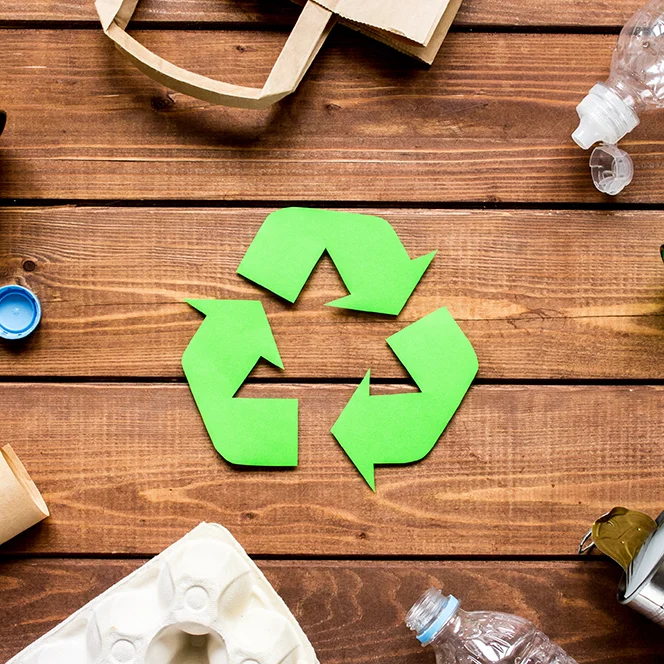This page aims to inform about recycling and its environmental benefits.

ITC

ITC
This page aims to inform about recycling and its environmental benefits.

Image of recyclable materials.
Introduction to Recycling
Recycling is a process through which waste materials are collected, sorted, and processed to be reused, helping to reduce pollution and conserve natural resources. By recycling, we prevent a large amount of waste from ending up in landfills or incinerators, which decreases greenhouse gas emissions and alleviates pressure on ecosystems.
The most commonly recycled materials include paper, cardboard, glass, plastics, and metals. Through proper waste management and recycling, it’s possible to extend the lifespan of these materials and reduce the extraction of natural resources. Additionally, recycling supports the circular economy, where resources are reused, and waste generation is minimized.
Recycling not only helps preserve the environment but also creates jobs and supports the industry in processing and manufacturing recycled products. Many countries have implemented recycling programs that include waste separation at the source and dedicated collection systems, making it easier to treat recyclable materials and prevent mixing with other waste types.
The recycling process is essential to reduce soil, water, and air pollution. By reusing recycled materials, the energy demand in manufacturing is reduced; for example, recycling aluminum or glass uses much less energy than producing them from raw materials. This positively impacts the reduction of the global carbon footprint.
Recycling is a shared responsibility among citizens, businesses, and governments. Adopting recycling practices at home, at work, and in the community is essential for building a more sustainable future. By choosing recyclable products and properly separating waste, we can all contribute to a cleaner planet and a more responsible management of natural resources.